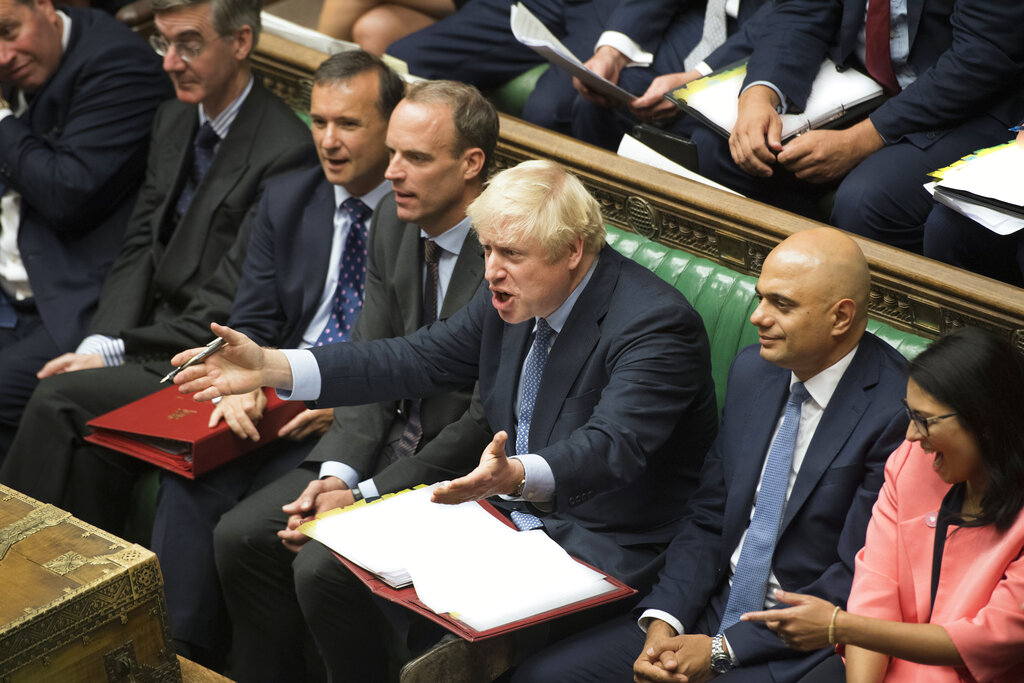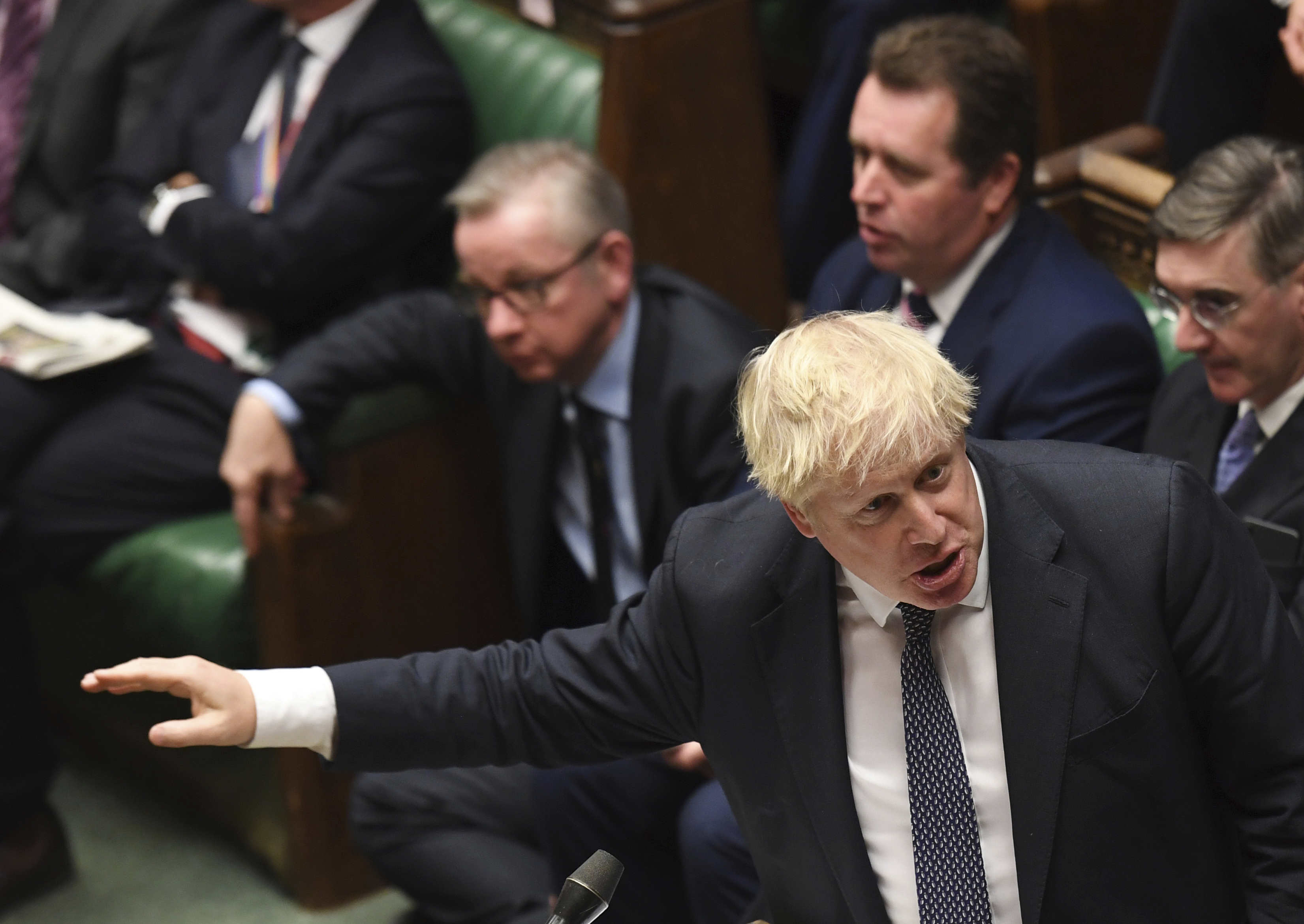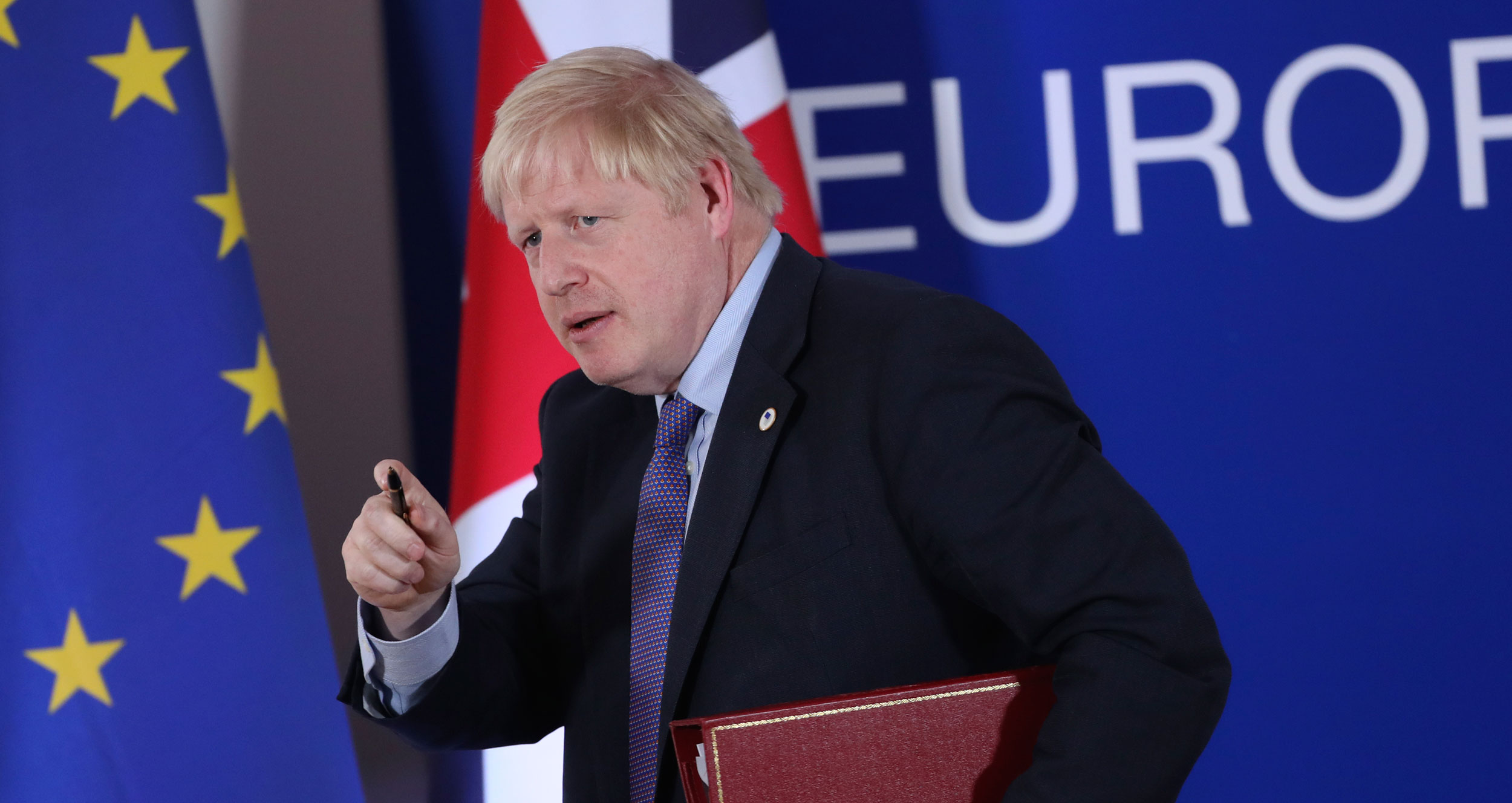Granted, Brexit is driving everyone mad. We Brits owe all our European friends a sincere apology, a bottle of whisky and complimentary tickets to a Royal Shakespeare Company performance of Hamlet. For Britain is now Hamlet, forever agonizing over whether Brexit is to be or not to be. So I can perfectly understand why Europeans like the French president, Emmanuel Macron, just want to be shot of us, so as to push ahead with an important, ambitious agenda for the whole European Union. Nonetheless, it remains in Europe’s own enlightened, long-term interest to go the extra kilometre.
I offer four arguments, all made from the point of view of the EU and Europe as a whole. First, a no-deal Brexit would be hugely damaging to Ireland and other parts of Europe geographically close to the United Kingdom. The amendment proposed by the independent Conservative, Oliver Letwin, and passed by Parliament on Saturday is intended, above all, to preclude no deal. Letwin himself had said he will vote for Johnson’s deal if it comes through Parliament in the correct legal form and subject to proper scrutiny.
Second, there is the question of who takes the blame. We know from a leaked document that the Johnson team of hard Brexiteers were preparing to blame any failure to get a deal on the ‘crazy’ intransigence of Brussels. If, however, Macron were to make an unholy alliance with Johnson to push Britain out of the door on October 31, then my side of the Brexit argument — the 3R side: for referendum, remain and reform — would be bound to place part of the blame on our European partners. At the moment, the EU has got itself in exactly the right position: it has showed firmness to defend the interests of Ireland and the single market, but sufficient flexibility to make any accusation of a punitive ‘Versailles’ treaty completely implausible. For example, the EU breached its own red lines in reopening the withdrawal agreement to make possible the new deal. It’s important that the EU stays in this sweet spot.
Third, it would be better for the long-term future of Europe if Britain stayed in the EU. There is no good outcome to Brexit, but the least worst way forward is for Britain to vote in a second referendum to remain in the EU. And the best way to achieve that is for Parliament to vote for Johnson’s deal subject to a confirmatory referendum in which the British public would be asked to make a binding, final decision on a single, clear question: do you want Britain to leave the EU on the terms negotiated by this government or do you want it to stay in the EU? To be or not to be.
Since this government is dominated by hard Brexiteers, and what is envisaged in the new deal is, in fact, a hard Brexit for England, Wales and Scotland, with a softer one only for Northern Ireland, no Leave voter could plausibly complain that he/she was only being offered the choice between a flaccid Brino (Brexit in Name Only) and staying in the EU. Hundreds of thousands rallied outside Parliament on Saturday to show their support for such a People’s Vote. Even more important than the activists are the opinion polls that now consistently show a majority for remaining in the EU. How absurd it would be if the UK were to leave the EU in the name of respecting ‘the will of the people’ at precisely the moment when the will of the people had changed.
I know that many continental European friends who were once sympathetic to a second referendum now think that the EU would be better off without us. I will not repeat here all the strategic arguments for why, in the long run, the EU would be better off with Britain inside the tent.
If Britain leaves now, it will take another five years to work out what the new economic relationship with the EU will be and whether Scotland will leave the UK, and then a further five years to see how all this beds down in practice. By that time, the EU and what is left of the UK will certainly have diverged. Britain will be worse off economically than it might have been, but probably not so badly off that stubborn English voters, in particular, would swiftly choose to return with, so to speak, their tails between their legs. If Brexit goes badly for Britain, that will ensure a thoroughly unhappy and bad-tempered relationship across the Channel, negatively affecting the vital cooperation on foreign and security policy. If, against the odds, Brexit goes well for Britannia, then nationalist populists like the Hungarian prime minister, Viktor Orbán, the Italian, Matteo Salvini, and France’s Marine le Pen will start to say, in those immortal words from the movie, When Harry Met Sally..., “I’ll have what she’s having.” Either way, it’s bad for the EU.
Even if you don’t accept this part of my analysis, there’s a fourth argument that should clinch the case. At the moment, Europe is the last best hope of a values-based West, understood as a set of countries standing up for democracy and the rule of law. Confronted with the demolition of liberal democracy in EU member states such as Hungary, this is one of the most important tasks for the next chapter of EU history, with new leadership in all European institutions, a freshly-elected European Parliament, and a seven-year budget to be agreed upon. Prominent among the European leaders crowding round to congratulate Johnson after the European Council approved the deal was the Hungarian prime minister — and Orbán and Johnson are brothers under the skin. Johnson’s schoolboy manoeuvre of sending an unsigned, photocopied official letter requesting an extension (as mandated by the so-called Benn Act), together with a signed one encouraging the EU to refuse that request, shows just how contemptuous he is of a law passed by Britain’s sovereign Parliament. Although his lawyers probably ensured that his conduct did not violate the letter of the law, it certainly violated the spirit of the law.
Fortunately, the checks and balances of British liberal democracy are working. In a magnificent, muscular verdict, the Supreme Court found that Johnson acted unlawfully in trying to prorogue Parliament for five weeks. And on Saturday, a democratically elected Parliament, once again, took back control from a bullying executive to ensure proper scrutiny of a hastily-made deal, which has epochal implications for both Britain and Europe. Whether this ends with a confirmatory referendum, as I hope, or with a general election, which seems more likely, or with Parliament narrowly approving Johnson’s deal, which I would lament but accept, it will be a lawful, democratic process. And a lawful, democratic process is something Europe should always support, even if it takes a little longer.
The author is Professor of European Studies at Oxford University and a Senior Fellow at the Hoover Institution, Stanford University













